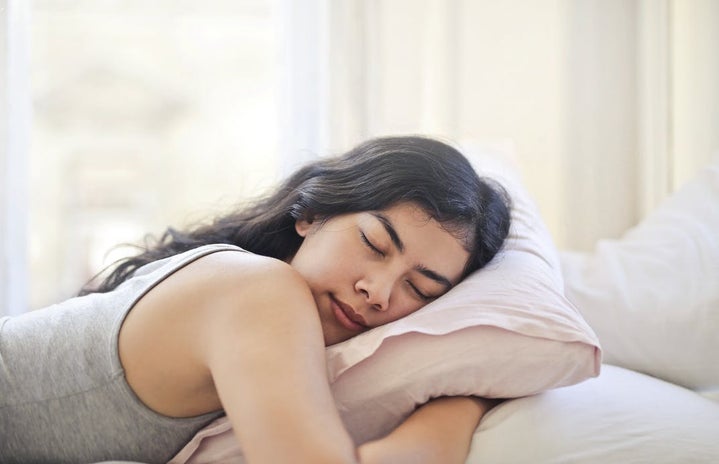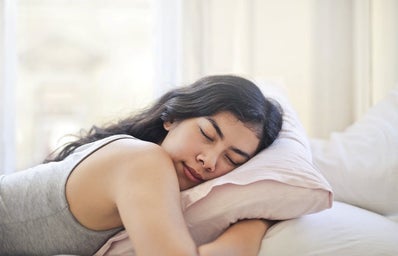On those days where it’s getting to be super late and you are restless in bed, it can be aggravating to be just trapped with your own thoughts. It becomes an endless cycle of stressing because you aren’t sleeping, but not sleeping because you cannot stop stressing. Here are just a few tips for falling asleep not only faster, but deeper for longer:
setting a schedule
Whether you write it down, download an app, or just make a mental note of it, setting a sleeping schedule is so important to getting a good night’s rest. You should draft what time you’re going to put away work from the day, brush your teeth, pack your bags for the morning, actually get into bed, when you plan to fall asleep, and what time you plan to get up. Without a plan, there is no intention of putting everything away to get to bed on time.
consistency
As important as setting a schedule is, it is just as important to stick to it regularly. The more consistent you become, the easier the routine will be. If you usually go to bed around 1 am but have a goal of getting to bed by 11:30, the longer you work at it, the closer you will get to that time. Not only this, but your circadian rhythm (our 24 hour internal clock) will eventually adjust to the new time. You will start becoming sleepier earlier, and as a result, can get more sleep.
exercising
Not only is exercise important for your mental and physical health, it can help you to fall asleep faster at night. According to John Hopkins Medicine, exercise raises your core body temperature. This is your body trying to tell you to wake up, similar to taking a hot shower in the morning. Your temperature increases, and as a result, you feel less groggy. When your core temperature falls back down, it makes you sleepy. So, about an hour after you finish working out, you’re going to feel tired and will be able to fall asleep easier.
avoiding electronics
While it may be easy to get sucked into TikTok right when you are about to go to bed, it is harming your sleeping patterns. The Sleep Foundation says that not only does technology stimulate your brain, but it also disrupts the natural production of melatonin, making it harder to fall asleep. The blue light emitted from your phone kills your sleeping patterns. It keeps you awake and throws off your circadian rhythm. Try to create a technology free space to keep the distractions away. This will undoubtedly help you to fall asleep faster.

changing your bedroom environment
A cozy sleeping space makes all the difference at night. Turn the AC temperature to your liking, turn the lights off, and try to make the room as quiet as possible. If something is the slightest bit off, you are going to be hyper focused on your discomfort, and therefore you are not letting your mind rest. Bed comfort, noise, and temperature play a direct role in your sleep quality and quantity.
Although some of these are a lot easier said than done, try your best to implement some of these tips into your daily routine. Your body will thank you in the morning when you get out of bed!



